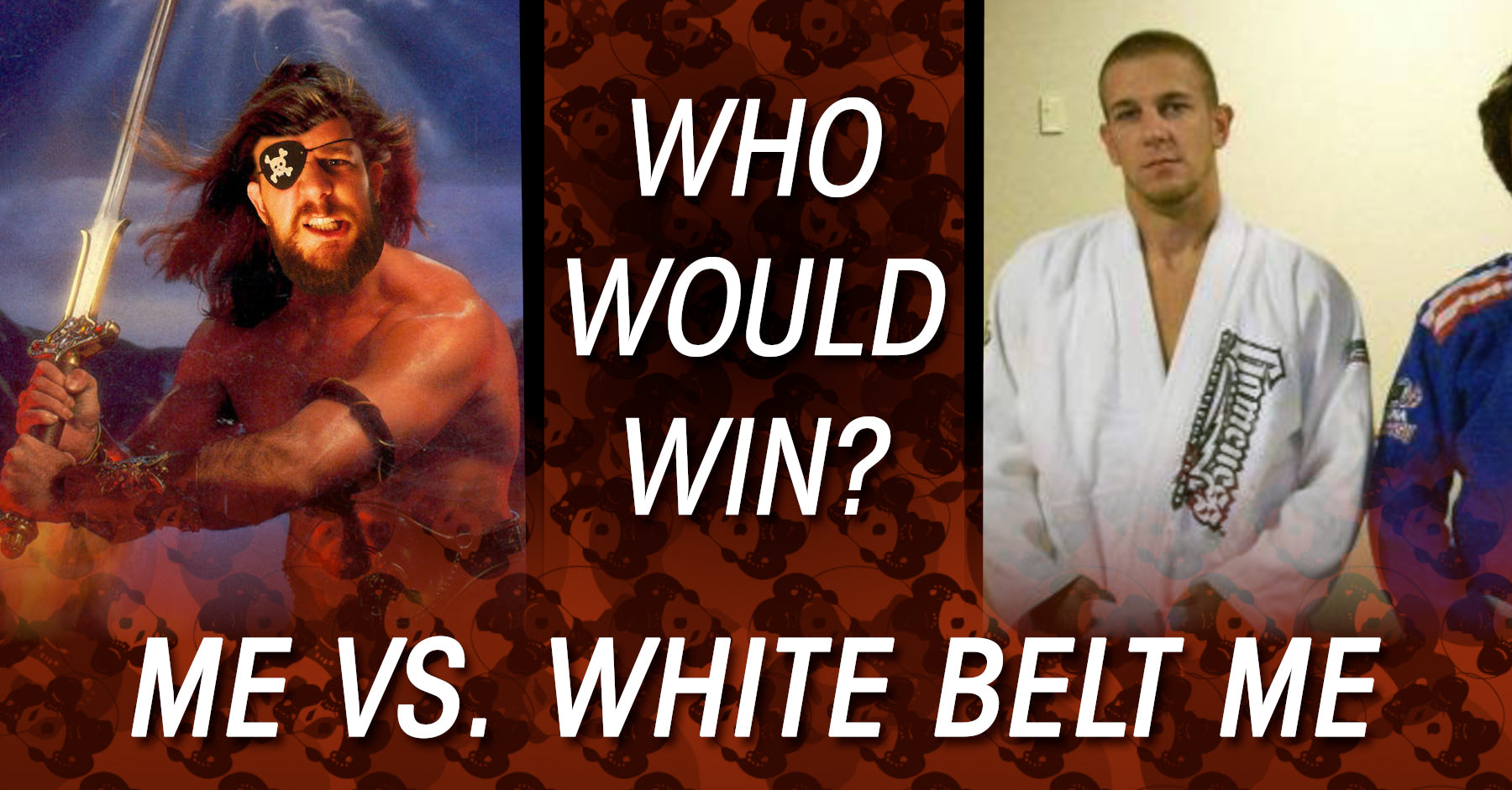
Me vs. White Belt Me
When I stepped on the mat, I was a freshman in college. I had a Rickson Gracie poster on my dorm room wall. Justin Timberlake had just brought sexy back. The Ultimate Fighter was a breakout hit, and everyone was debating who would win, Matt Hughes or Royce Gracie?
More than a decade later, a great deal has changed in the world, the sport, and in me. I have officially spent more time training jiu-jitsu than I did in the public education system. I’ve earned a master’s degree. I’ve founded and sold businesses. I’ve gotten married. Thinking about the Marshal who stepped on the mat that first day and comparing him to the Marshal who steps on the mat to teach now is jarring.
Looking back, I realize that my expectations for myself and for my journey were very different from what actually happened, and I think having some insight into what a long jiu-jitsu career actually means may have helped me overcome some of the most challenging obstacles in my training. I’m not claiming to have the answers, but one or two of the lessons I have learned might help you.
How was my white belt perception of jiu-jitsu different from the reality? Here’s what I’ve realized:
See you on the mats.
More than a decade later, a great deal has changed in the world, the sport, and in me. I have officially spent more time training jiu-jitsu than I did in the public education system. I’ve earned a master’s degree. I’ve founded and sold businesses. I’ve gotten married. Thinking about the Marshal who stepped on the mat that first day and comparing him to the Marshal who steps on the mat to teach now is jarring.
Looking back, I realize that my expectations for myself and for my journey were very different from what actually happened, and I think having some insight into what a long jiu-jitsu career actually means may have helped me overcome some of the most challenging obstacles in my training. I’m not claiming to have the answers, but one or two of the lessons I have learned might help you.
How was my white belt perception of jiu-jitsu different from the reality? Here’s what I’ve realized:
- Competition isn’t everything, and it is not for everyone. When I started, my dreams were about becoming a World Champion. I see this a lot in new students, but now I see that some of the best representatives of and contributors to the art never compete. They have their careers and their families and are super supportive of everyone when they go to the gym. In many ways, that does more for the sport than standing on a podium.
- Goals change. The reason you started training does not have to be the reason you keep training. When injuries derailed my competition goals, I found new rewards in being a teacher and in being a community advocate. Today, I find this more rewarding than winning medals ever did.
- Being tough is not the same as being skilled. Some of my students look at me funny when I tell them I was tougher as a blue than I am now. Sure, I have 10 more years of knowledge, but when I was 21 I could train for 5 hours a day, had abs, and could go roll full tilt for several rounds. That kind of athleticism is a huge asset. I’m a lot less durable now, but I’m smarter and have much deeper technique.
- People come, and people go. The idea of a jiu-jitsu team is a powerful thing, but my relationship with jiu-jitsu is older than my marriage. As you train, you will see a wide range of people enter and leave your life. While you should enjoy the time you have with them, you should also recognize that the tug and pull of life leads to constant change. If you define the whole of your jiu-jitsu experience on the people you train with, you will find it difficult to adapt when those people move on or change themselves.
- Your journey is your own. I’ve watched people who I promoted get their black belts before me. I’ve done the same to people who started training before me. I train more than many people but also train less than many others. Comparing yourself to your training partners or to the latest Instagram star is not productive. Make your jiu-jitsu about you, and don’t get caught up in who is better than who.
See you on the mats.
Other articles:
Quick links
Contact us
About us
Quality BJJ gear at fair prices, available all year. Founded in 2012 to provide an alternative to high-cost, limited edition gis. Dive into the BJJ lifestyle with us—join the Panda Nation!"
